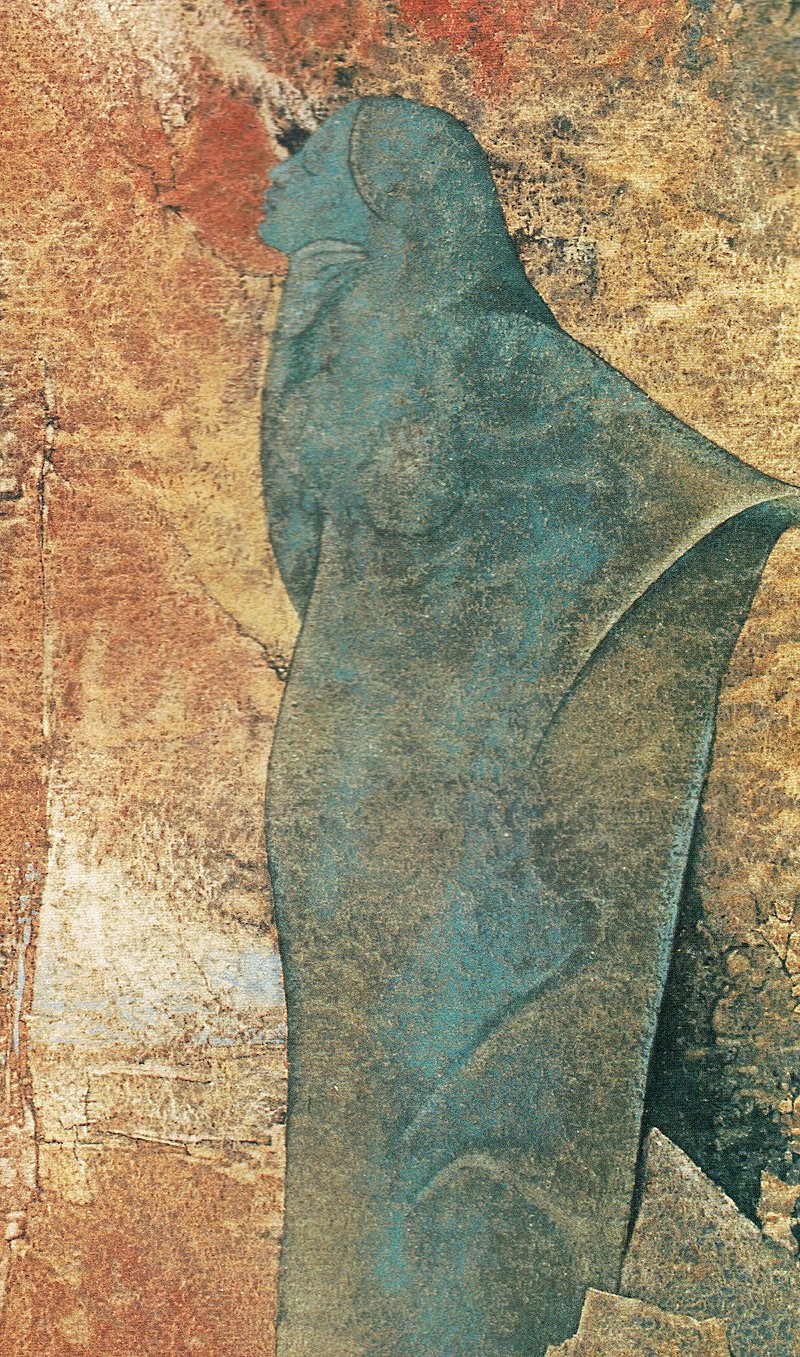Hagar
*See also: The Free Woman, Mother of a Son of Abraham (Hagar); Also mentioned in the Apocrypha (see Apocryphal Women)
Genesis 16; 21:9-21; 25:12-16; Galatians 4:24-25
Genesis 16:1-6 Now Sarai, Abram’s wife, bore him no children. She had an Egyptian slave whose name was Hagar, and Sarai said to Abram, “You see that the Lord has prevented me from bearing children; go in to my slave; it may be that I shall obtain children by her.” And Abram listened to the voice of Sarai. So…He went in to Hagar, and she conceived, and when she saw that she had conceived, she looked with contempt on her mistress…. Then Sarai dealt harshly with her, and [Hagar] ran away from her.
Galations 4:24-25 Now this is an allegory: these women are two covenants. One woman, in fact, is Hagar, from Mount Sinai, bearing children for slavery. Now Hagar is Mount Sinai in Arabia and corresponds to the present Jerusalem, for she is in slavery with her children.
“Hagar Speaking with the Angel” by Frank Wesley, from Art in the Christian Tradition, a project of the Vanderbilt Divinity Library.
It’s not an Israelite, not a man, not even a free person who becomes the first and only person to give the divine being a name in the Hebrew Bible. That distinction belongs to the enslaved woman Hagar. Hagar’s unique relationship with God, Sarah, and freedom has led to the reexamination of Hagar in modern times by womanist and feminist scholars.
Scripture introduces Hagar in the story of Sarah’s quest to have a child with her husband, Abraham. After years of infertility, Sarah gives her slave Hagar as a surrogate womb for Abraham to impregnate. Hagar becomes pregnant, and something shifts in the relationship between the two women. Hagar looked at Sarah with “contempt,” and Sarah “dealt harshly” with Hagar (Gen 16:4,6).
The pregnant Hagar flees into the wilderness, but an angel finds her and tells her to return to Abraham’s household. However, in addition to commanding her return, he reveals something momentous to Hagar: God will “multiply her offspring” (Gen 16:10). How does this slave woman respond to being made such a promise? She calls God “El-roi” or “God Who Has Seen Me” (Gen 16:13, as translated by Wilda C. Gafney).
Hagar returns, and her son Ishmael is born. Sarah, too, has a biological child she names Isaac. But even after following the angel's command, Hagar’s safety is not assured. Sarah sees Ishmael and Isaac playing together, and she tells Abraham to send Hagar and Ishmael away, “for the son of the slave woman shall not inherit along with my son Isaac” (Gen 21:10).
Hagar once again finds herself in the wilderness, this time with her young son. On the brink of death, God reveals an oasis to Hagar. She and her child are saved. As Ishmael grows up, “God was with the boy” (Gen 21:20).
God keeps God’s promise both to Hagar and to Sarah; both become the foremothers of great nations. The relationship between the slave woman and her mistress “continues to prompt ethical reflection on broken relationships, both personal and political” (WBC 55). While the two women never see each other again, their children do. Years after Sarah’s death, the two sons, Ishmael and Isaac, reunite at the burial of their father (Gen 25:9).
Hagar’s name means “foreign thing” in Hebrew. “Hagar” is probably not the name her parents gave her. “It is more likely that Hagar is what she was called after she entered a Hebrew-speaking household” (Wilda C. Gafney, Womanist Midrash, 62).
African American readers have found a special kinship with Hagar because of her status as a slave.
In Islam, Hagar is the foremother of the Arab followers of Muhammad.
List of Reading & Resources:
Articles
Books
Reimagining Hagar: Blackness and Bible by Nyasha Junior (2019)
Reframing Her: Biblical Women in Postcolonial Focus by Judith E. McKinlay (2004)
“A Mistress, A Maid, and No Mercy” (Ch.1) from Just a Sister Away by Renita Weems (1988)
Podcasts
Apocryphal Resources
